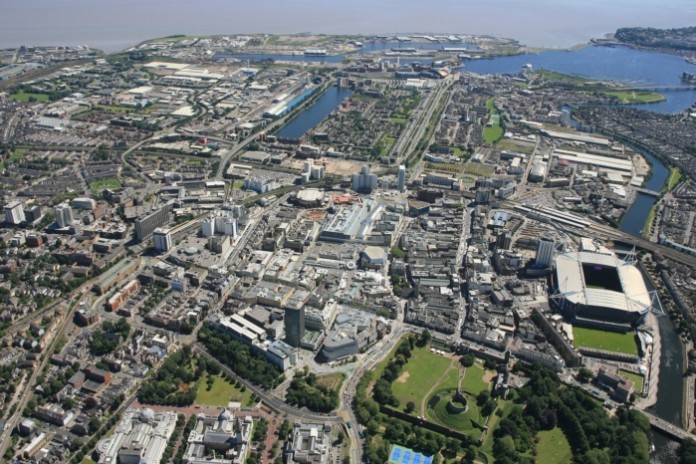Cardiff Capital Region is stepping up a gear as its 2020-21 business plan reveals some transformative new projects are expected to reach legal completion this year.
This is the fourth annual business plan for the capital region, which has seen some of the highest levels of relative GVA growth in the UK in 2018-19. But there is still much to do and the plan focuses on the next steps that are expected to take shape over the coming year.
One of the key themes in this year’s business plan is economic inclusion. Parts of the region remain stubbornly low in competitiveness compared to the rest of the UK, with Blaenau Gwent and Merthyr stuck at the bottom of the UK Competitiveness Index.
Consequently, the CCR Regional Economic and Industrial Plan and Investment and Intervention framework are focused not just on projects, but on where the benefits will be felt. In the words of the business plan, “Sustainable, inclusive and distributed growth is a key aim, ensuring we make sincere attempts to share and spread prosperity.”
In terms of projects, the business plan lists some of the highlights of the past year, including the compound semiconductor foundry in Newport, which is now in production after a drawdown of £33m out of a planned project investment of £37.9m.
There have been 65 new jobs created at IQE and a further 545 roles safeguarded at IQE and NWF. An additional 259 indirect supply chain jobs have been created as a result of the foundry, and so far 697 jobs have been indirectly supported in the region’s semiconductor cluster since the foundry began. The £37.9m investment by CCR is expected to leverage £375m in private sector investment.
For 2020-21 the business plan anticipates progress on pushing forward further projects from strategic outline case through to legal completion. These include:
- Metro Plus, a £50m scheme to add further enhancements to the South Wales Metro transport network including park and ride schemes, new bus and rail interchanges and improved stations;
- Cardiff Metro Central, a £200m scheme to provide Cardiff with a new central transport hub with bus and coach stations and an improved Central Station;
- Housing Catalyst Fund, a £30-60m project to address market failure in meeting housing need by providing funding support in unlocking development in underserved areas;
- CS Connected – a £45m business case has been submitted to the UK Government’s Strength in Places programme for this project to build out the compound semiconductor cluster.
Additionally, there are a number of other initiatives that are at an advanced stage, and these include:
- Digital Infrastructure – there are a number of potential projects in this critical pipeline, and CCR is actively working with Welsh Government and the Department for Culture, Media and Sport to deliver gigabit connectivity across the region in as short a timeframe as possible.
- Graduate Scheme – this scheme to make the region more attractive to graduates by supporting graduate internships, which has been developed in partnership with the University of South Wales, Cardiff University, Cardiff Metropolitan University, the Open University in Wales and business representatives, has been a great success to date. Further investments are scheduled to be made in the scheme to enable it to expand and grow.
There is no shortage of future projects for the Regional Cabinet to consider, with 15 having completed their initial enquiry documentation and a further 28 in the pipeline, of which between three and six are expected to be brought forward for formal consideration.
The business plan lists four key objectives for 2020/21:
- To leverage the foundational capacity and resources that are already in place to optimise pipeline throughput and delivery of projects;
- To evaluate progress so far in preparation for the Government’s ‘gateway’ or independent assurance review next year;
- To influence and engage with potential new partners to leverage investment and partnership opportunities;
- To build for the future of the region beyond the city deal by developing a one region ethos, putting in place a set of fiscal levers, introducing a statutory joint committee for the economy and developing a climate vision and mission statement.
The overarching objective of the CCR is defined as growing a connected, competitive, and resilient economy, and establishing the CCR as a place where prosperity is shared and wealth and wellbeing are compatible goals. The 2020/21 business plan signposts the next stage of the journey towards that goal.



















